Wet weather delays important flood defence work
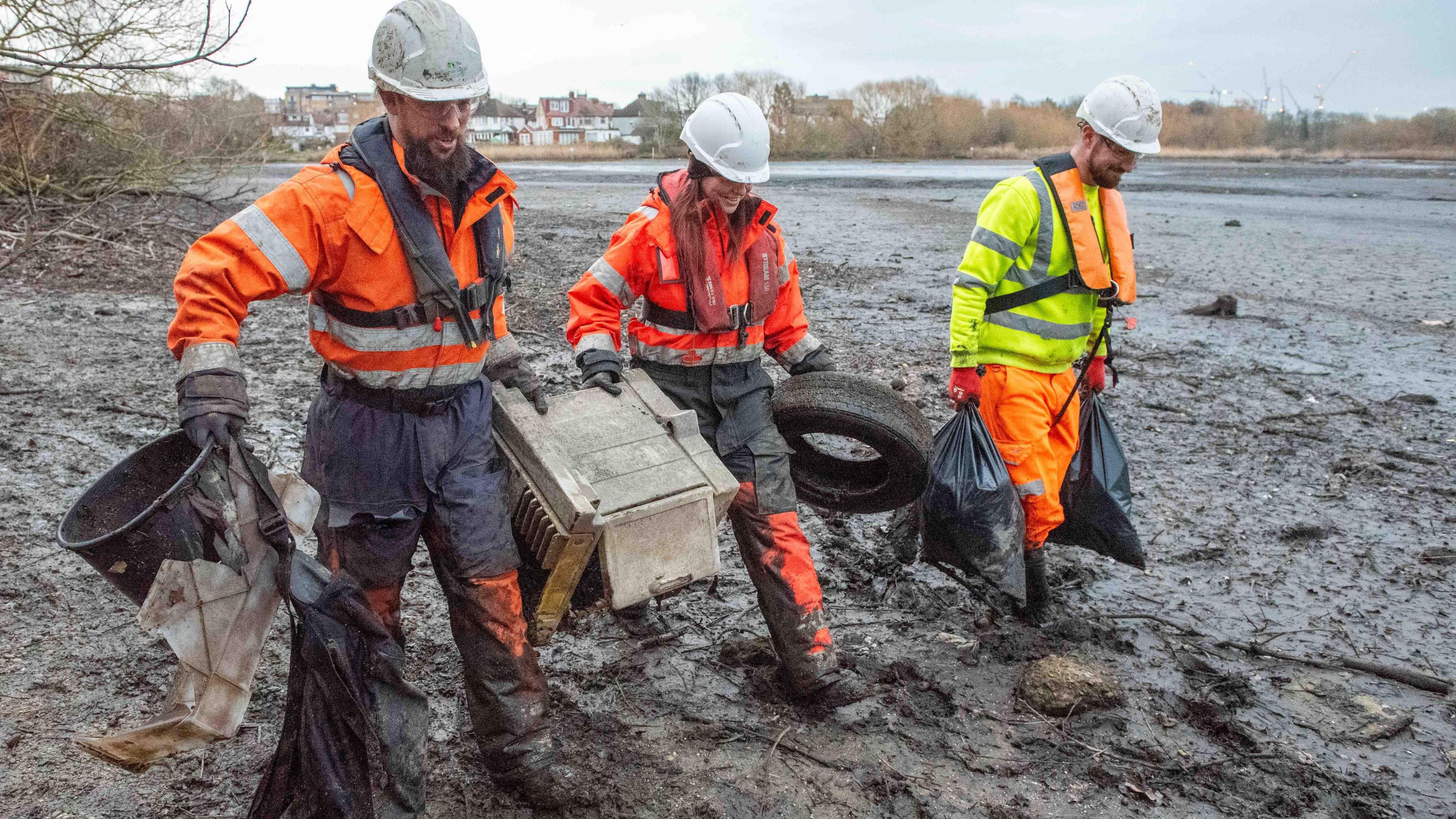
Workers collect rubbish from the reservoir bed
- Published
Nestled between the M1 motorway and London's North Circular road is the Welsh Harp, a reservoir and one of the capital's biggest flood defences.
Known officially as Brent Reservoir, it has been deliberately drained for maintenance work.
But the work is taking longer than planned because the unusually wet weather means the reservoir keeps filling back up.
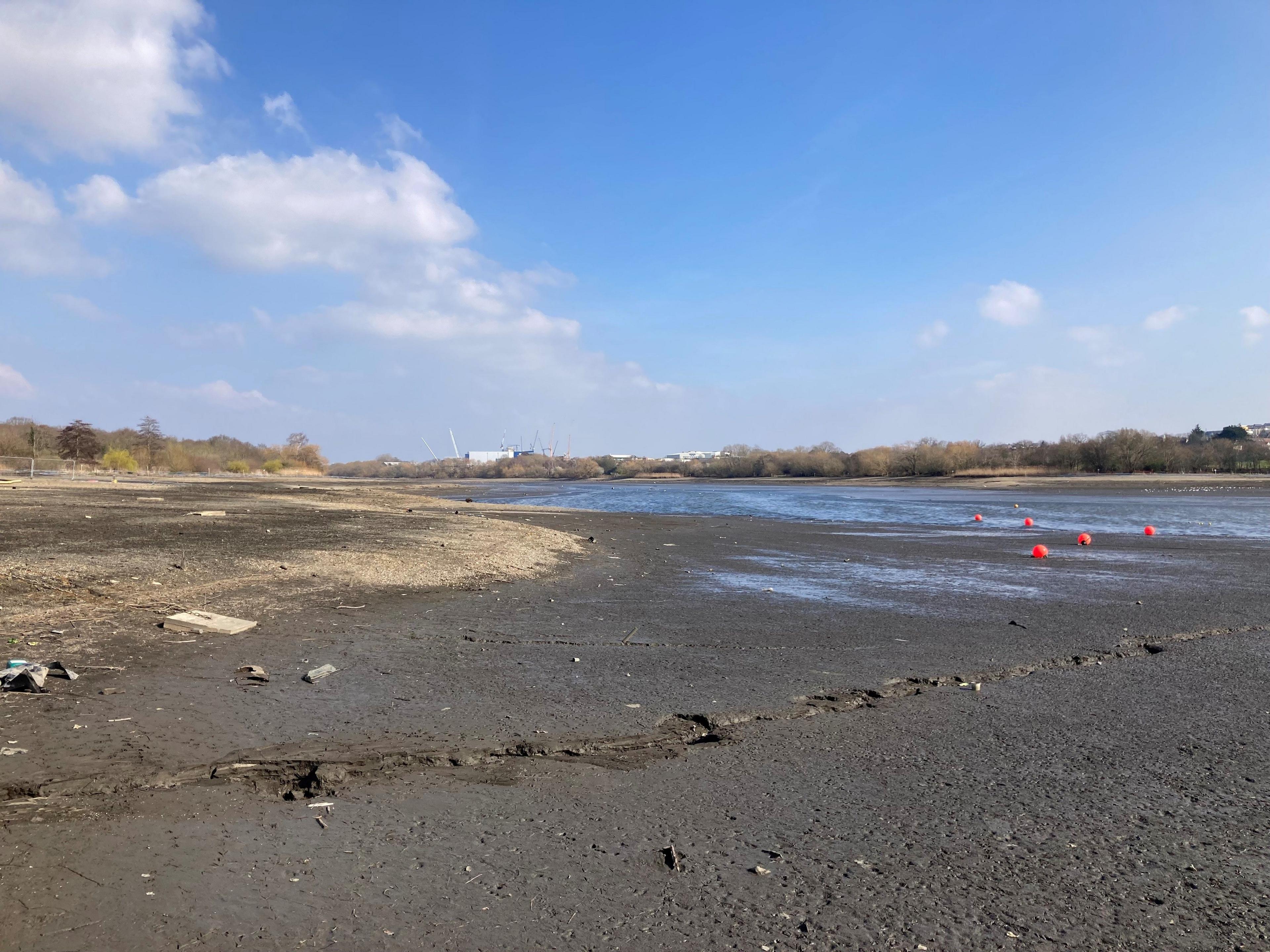
The drained Brent Reservoir, which is a haven for nature and wildlife
David Prisk, from the Canal and River Trust, says recent heavy rains have delayed vital work to ensure built-up areas remain protected.
"It takes several weeks to empty the reservoir and we were hoping to finish it before now.
"But during this winter, we have had nine named storms, we've had the wettest February on record, we've had 50% more rain this winter than the average for the last 20 years.
"So we have just suffered by the amount of rain."
'Protect the town downstream'
The maintenance work will fix chains that hold up the sluice gates, which regulate the amount of water released from the reservoir. It will cost £2m.
Mr Prisk says the chains and pulley wheels "need replacing as they control the two gates at the bottom, just under the water, to protect the town downstream".
He said the project would also see the repainting of the reservoir's tower, "so it lasts into the future".
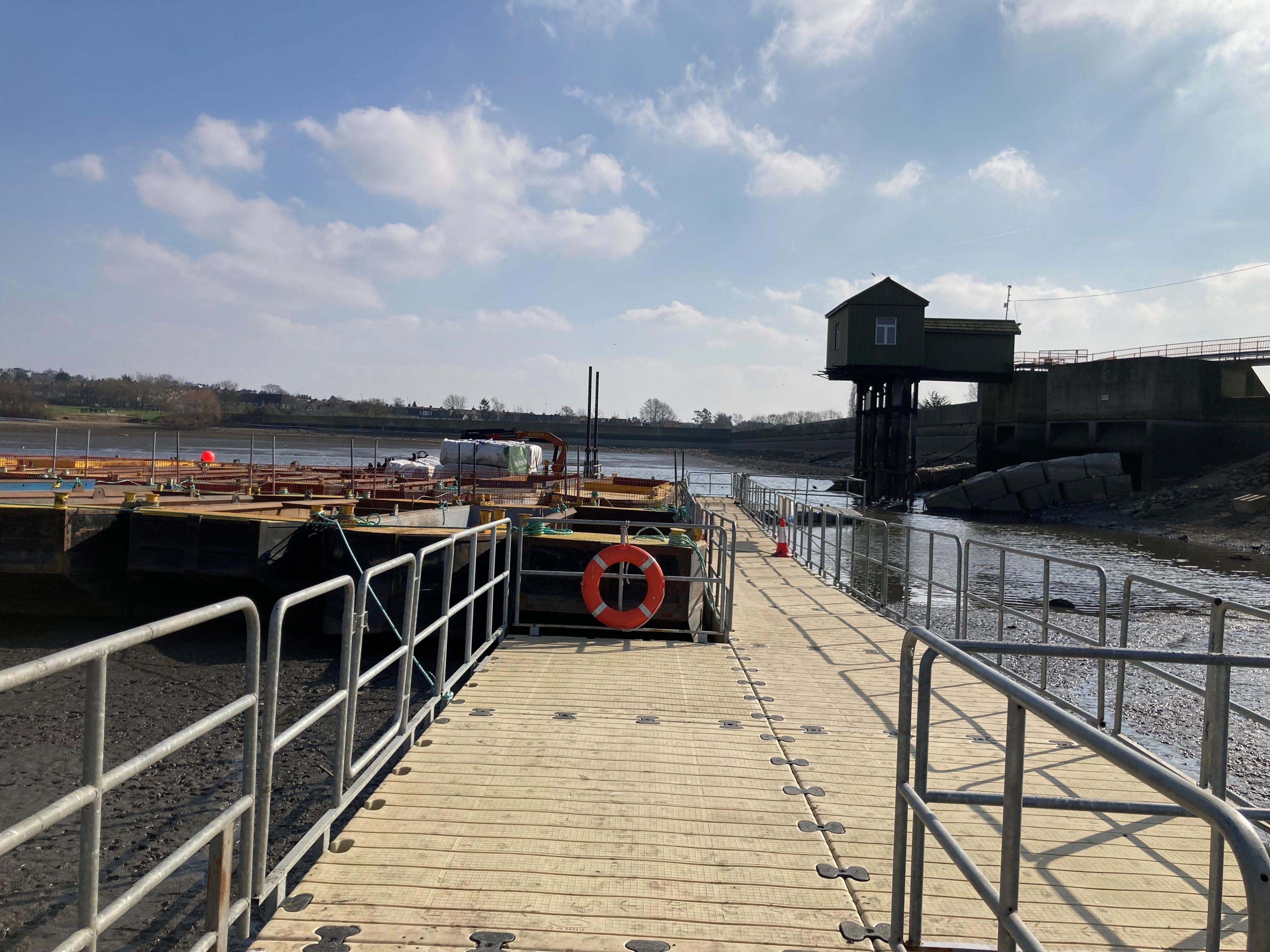
The reservoir tower that needs refurbishing
The Welsh Harp was built in 1834 and was originally designed to fill up the canals of London.
Two rivers, the Brent and the Silk Stream, were dammed to create it. Now though, it is one of London's biggest flood defences.
It catches water from 180 sq km (44,500 acres) of land to the north of London and Hertfordshire.
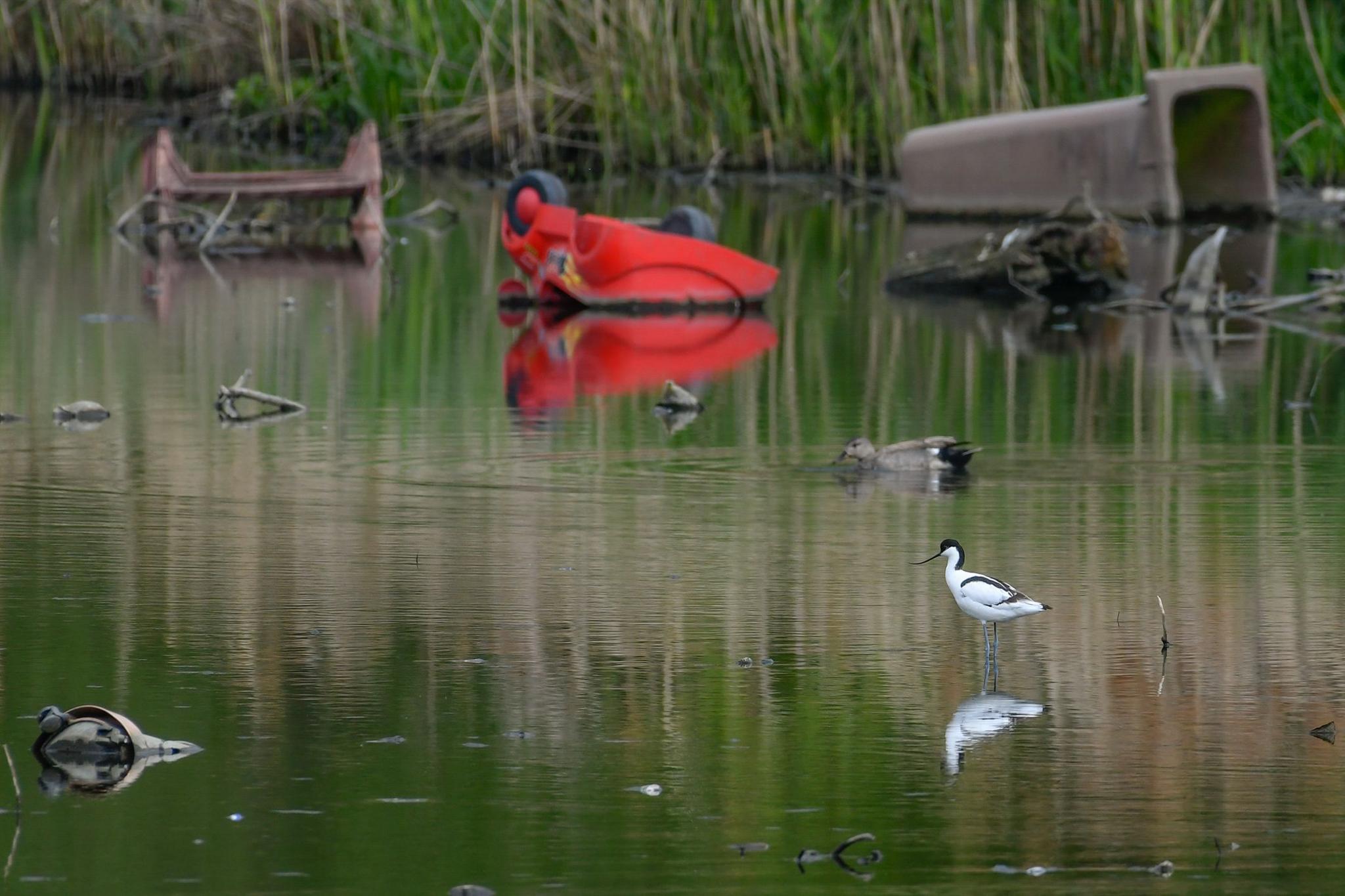
An avocet wades among the rubbish that can be seen in the drained reservoir
It is also one of the oldest Sites of Special Scientific Interest and a haven for nature and wildlife.
During the draining, workers cleared all sorts of junk and rubbish. They found old bits of cars, washing machines, thousands of car tyres and even parking meters.
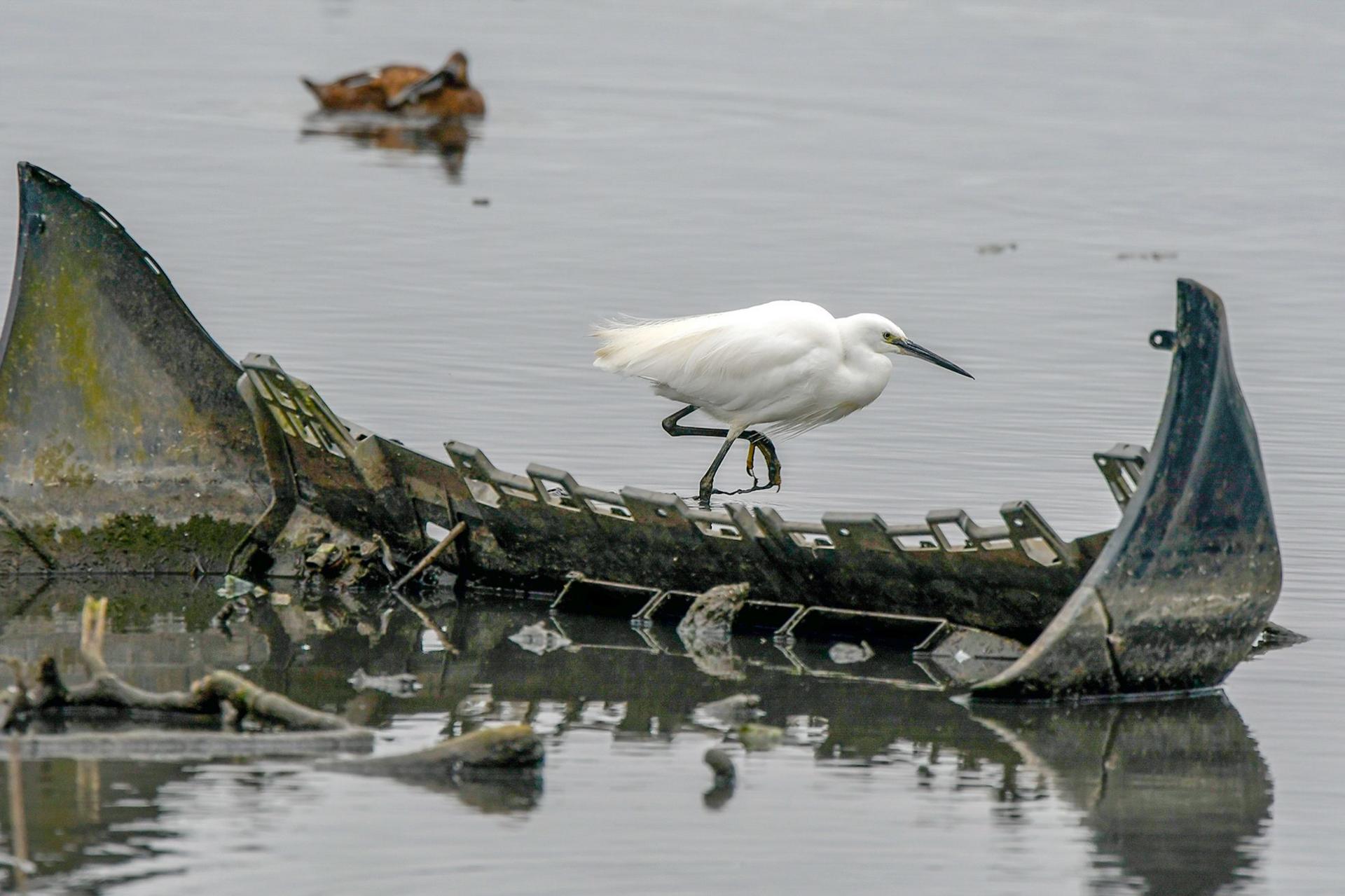
A bird resting on a car part
All of that was removed as well as 10,000 fish, which were relocated. The water is set to be restocked with fish in April.
There are also tonnes and tonnes of black silt that come from the nearby roads.
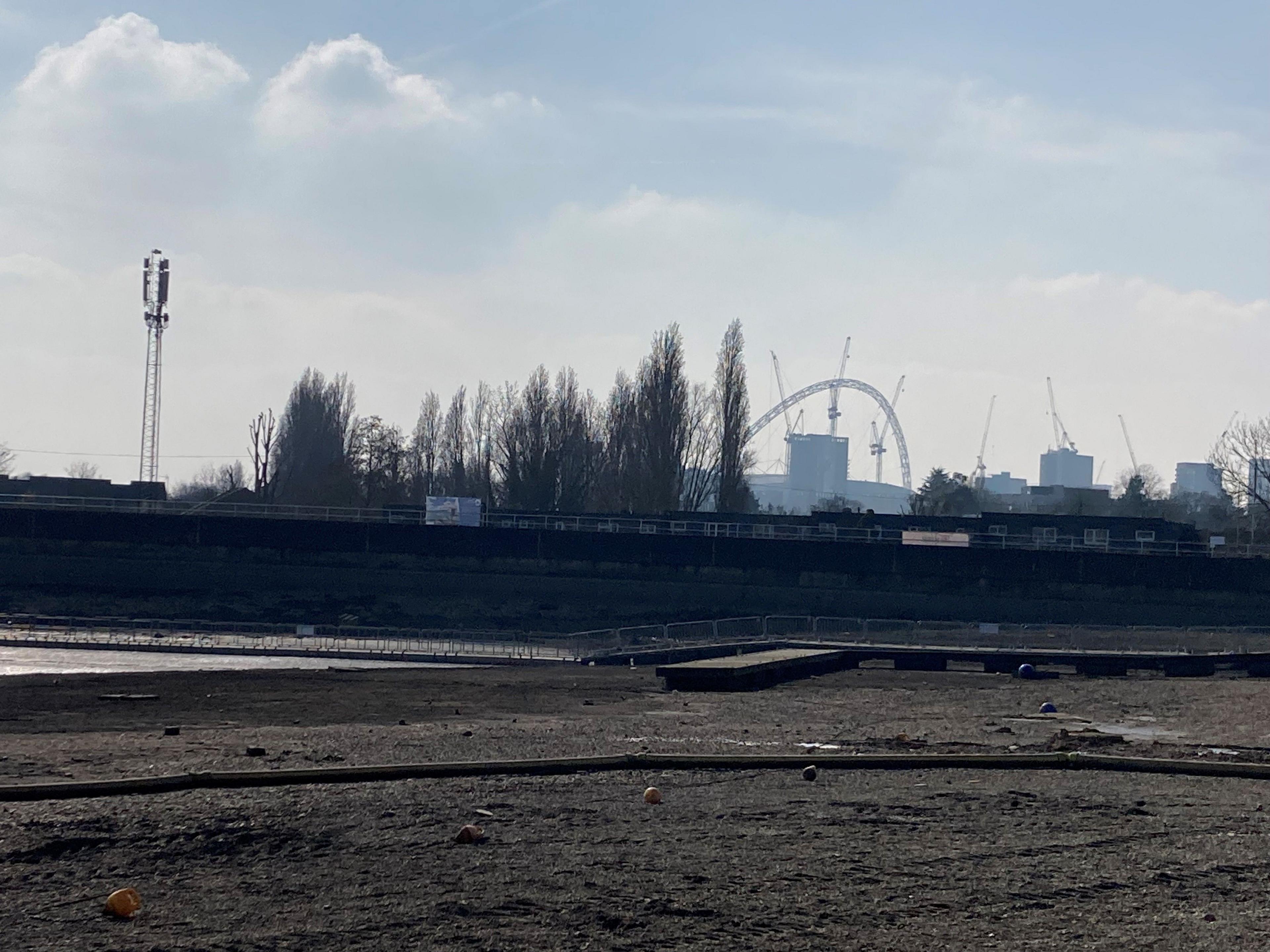
The Wembley Stadium arch as seen from the drained reservoir
Ben Macmillan is an ecologist with the Canal and River Trust. He says the reservoir is one of London's wildest spaces: "It's one of the earliest designated Sites of Special Scientific Interest.
"It has over 1% of the population of Great Crested Grebe and Common Terns in the whole of the UK. So it's a really important place for these specific birds."
The Brent reservoir is due to be refilled with water by the end of May.